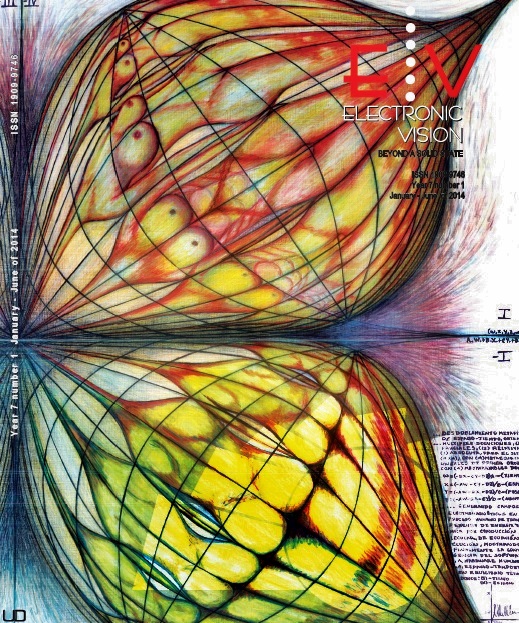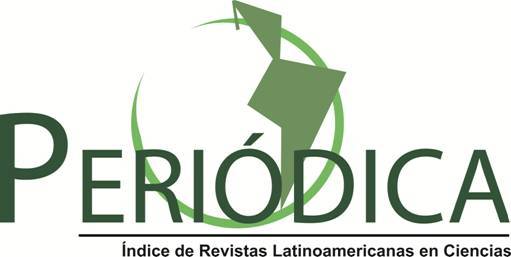DOI:
https://doi.org/10.14483/22484728.7902Publicado:
2014-12-04Número:
Vol. 8 Núm. 1 (2014)Sección:
Visión BibliógraficaPa que se acabe la vaina
Palabras clave:
Bibliográfica (es).Descargas
Cómo citar
APA
ACM
ACS
ABNT
Chicago
Harvard
IEEE
MLA
Turabian
Vancouver
Descargar cita
PA QUE SE ACABE LA VAINA
William Ospina. Planeta Editorial, 2013, 237 pp.
Rosendo López Gonzalez
B.Sc In Chemistry Engineering, Universidad del Atlántico, Barranquilla (Colombia). M.Sc. In Teaching of Chemistry, Universidad Pedagógica Nacional, Bogotá (Colombia). Current position: Professor at Universidad Distrital Francisco José de Caldas, Technological Faculty. E-mail: rlopezg@udistrital.edu.co
Luz Marlén Durán V.
B.Sc. In Education, Universidad Pedagógica Nacional, Bogotá (Colombia). M.Sc. In English Teacher Training, University of Exeter (England). PhD. In Social Sciences Childhood and Youth, Universidad de Manizalez-CINDE (international center for Education and Human Development), Bogotá (Colombia). Current position: Professor at Universidad Distrital Francisco José de Caldas, Faculty of Science and Education. E- mail: lmduranv@udistrital.edu.co
The account of our history is repeated in close circle. We always come to the same point: descriptive accounts from the perspective of powerful men, where the great characters are the titans. We are obsessed with continuing with the same report of centuries ago; instead, In his new essay of 237 pages, professor Ospina attempts to reconstruct new narratives, using new words, new sources and new analogies, but above all, with a search that gives sense to our Colombia of today, the one of the armed conflict concentrated on the periphery of the country.
So what are Ospina’s secrets in his writing? One of the answers can be that he speaks of all the topics traditional power has wanted to erase : the magical powers of the indigenous, the secrets of the African culture brought from African ports, the education as negation of subjects that disagree, ask and construct. Other answers could be that for the writer no one is right, or speaks with absolute truth. The metaphysic thinking has kidnapped the truth; it is possessed by the military forces, the church, political parties, and corporations. Ospina belongs to other historic moments where the truth has to be constructed daily, and overall, to the side of those who have been distressed by the totalitarian action of such truth. It is about a thinking that could be called post-metaphysic, whose reason of being would be the interpretation of realities
On the other hand, and could also be considered as an answer of the formulated question. There is something strange in the historic reconstruction of everyday lives. There has not been a bit of adulation to the characters of the history. Unintentionally, Ospina follows the maxim of Dante Alighieri (1265-1321) who in The Divine Comedy, where the adulators appear in an unfortunate scene in hell, he writes:
“And I saw, while I was looking for with the eyes, To one with too much shit in the head That did not show if he was a lay or a cleric”.
Besides, Ospina avoids in his writings an instrumentation of politics, which means that there is not political publicity to any party. In this scenario, the country becomes a winner since the essay is a song to the peace, it clearly exists praise to the dialogic ending of the Colombian conflict in his book. The nuisance that must finish is the war, and the author is only faithful to the idea of disagreeing, without having us to kill each other.
When new protagonists enter to the account, a new story emerges transformed by the power of language. Our daily tragedy is painted from the first paragraph with an amazing construction:
“Colombia lives one of the most dramatic conflicts of Western hemisphere; with hundred of thousands of deaths, millions of Victims and national refugees, millions of immigrants to other countries and a growing deterioration of Institutional order that can be measured by the justice crisis, the high level scandals of corruption, and the great number of congress men who transit from power to prison” (p.9)
The armed conflict is used by all traditional and new political parties with the main purpose of making Colombian people cultivate feelings of revenge between themselves. The nuisance the Padua´s poet refers to, is the one that should be finished in Colombia; the one of the forced displacement, the one of the pain and suffering.
Our admired writer from Tolima, widely reconstructs a version of our history from the time of the conquest when it appears in our Parnassus Juan De Castellanos (1526-1607) whose long poem “Elegies of illustrious Men of the Indies,” describes his first elegy as a suffering song of the conquest, and reveals that Don Gonzalo Jimenez de Quesada is not a knowledgeable man, therefore his sword has a supreme value.
Ospina explains with originality and amusement the relationship between Colombian leading class and the drug dealers, and inquires: “why are drug dealers annoyed with the country? Why are they bothered with our institutions? And why are they troubled with the governing class? Ospina says:”The old elite with their exclusive behaviors had an equalitarian detector” (p 216). But the most significant part of the report, which causes amazement, is when the writer refers to the drug dealers´ revenge as says:
Maybe that caused the terrorism and the intention of transforming the country. It is possible that drug dealers were willing to pay their penalties in Colombia as it was said, to pay the external debt, and as sometimes was even proposed; to legalize their fortunes, but they did not allow others to see that the elite, nourished by the aristocratic spirit of the capital, was disposed to do business with them but not to consider them as equals, which converted some of them into crazy.
“PA QUE SE ACABE LA VAINA” is a suggested book to be enjoyed. It is an unusual version of Colombian history which is sang and told by an outstanding poet whose straightforward but authentic writings radiate splendid language constructions with an absolute respect of others.
The cleric Jacques Benigne Bossuet (1627- 1704) from Egypt, the country of the pyramids, calls the libraries the treasure of the soul remedies since they cure the most complicated of all sicknesses: the ignorance. This book therefore, can not be absent from our library in order to fight the most absurd illness of our country: the nuisance of the violence, the nuisance of the war


.png)




.jpg)





